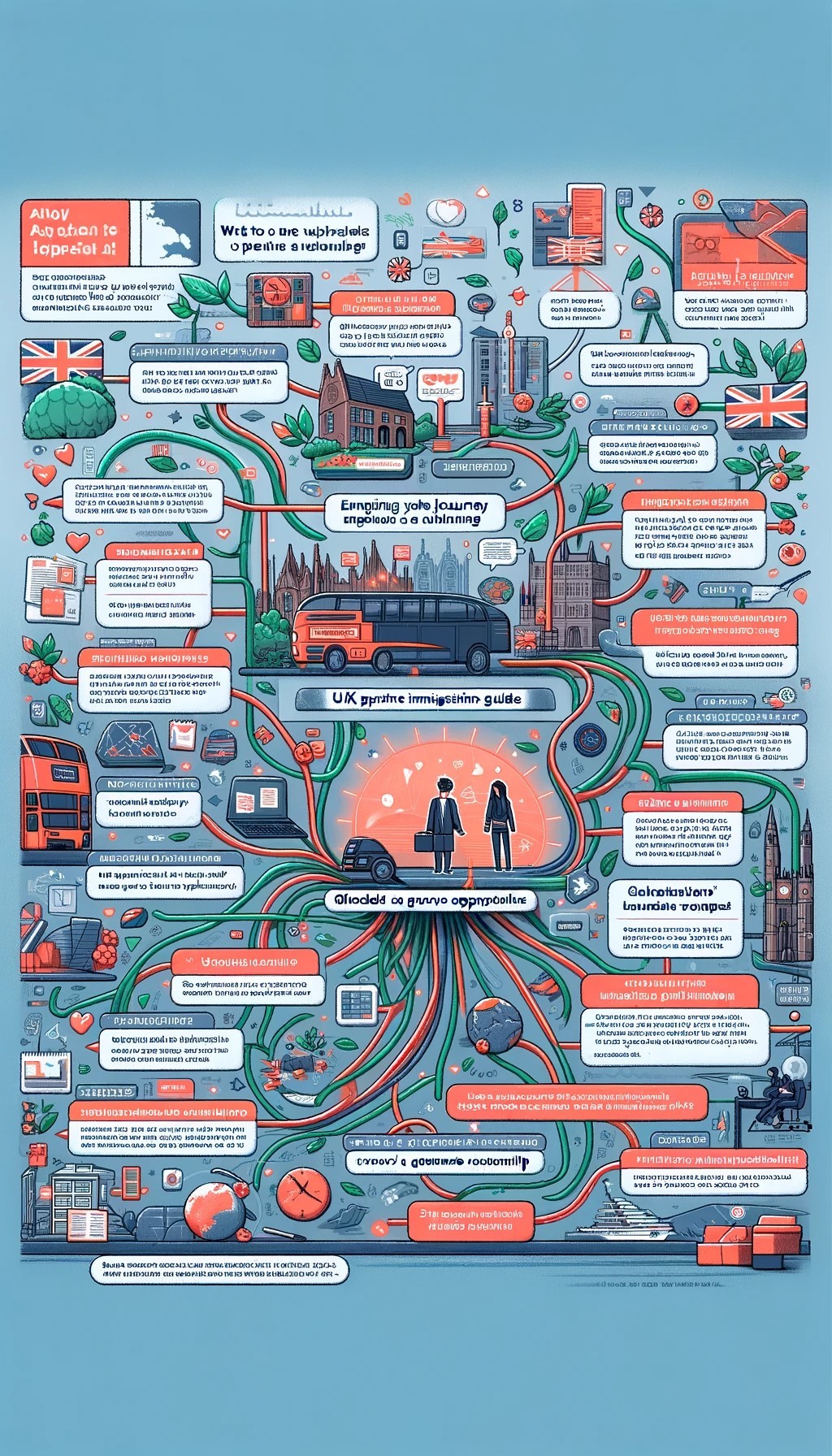UK Partner Visa Guide: Navigating Love and Immigration

Emma and Alex are both from Canada. They are not married, but have been in a committed relationship for three years.
Several month ago Alex came to the UK under the Skilled Worker route. Emma could not accompany him because of her employment commitments. Now she started working only and they are both determined to start a new chapter together in the UK.
Emma and Alex would like to prepare Emma’s application to join Alex as his dependant.. To be approved, their application needs to be detailed and carefully prepared, highlighting the authenticity of their relationship and their readiness to build a future together in the UK.
Emma and Alex’s journey underscores the importance of thorough preparation and understanding the UK’s immigration requirements.
In the article below, you will find essential insights and guidance for Emma and Alex, to navigate their journey towards a shared future.
The UK Immigration Routes
The article will explain the rules that apply to partners who would like join their loved one in the UK, provided they are on one of the following UK Immigration routes:
- Appendix Ukraine Scheme
- Appendix Settlement Family Life
- Appendix Student, Appendix Graduate, Appendix Skilled Worker
- Appendix Global Business Mobility
- Appendix Scale-up, Appendix High Potential Individual
- Appendix Global Talent
- Appendix Start-up
- Appendix Innovator Founder
- Appendix T2 Minister of Religion
- Appendix Representative of an Overseas Business
- Appendix UK Ancestry
- Appendix International Sportsperson
- Appendix Temporary Work – Creative Worker
- Appendix Temporary Work – Religious Worker
- Appendix Temporary Work – Charity Worker
- Appendix Temporary Work – International Agreement
- Appendix Temporary Work – Government Authorised Exchange
- Appendix Gurkhas and Hong Kong military unit veterans
- Appendix Family Reunion (Protection).
Embarking on the journey of moving to the UK through a partnership, whether with your spouse, civil partner, or an unmarried partner you’ve been with for at least two years, can seem daunting. But, with the right information at your fingertips, you can navigate this path smoothly. This guide simplifies the process, making it easier for you to understand and act on the requirements for your application.
Exploring Your Immigration Options
When it comes to moving to the UK based on your relationship, a range of options are available, each catering to different needs and circumstances. Whether you’re considering furthering your education, advancing your career, or simply starting a new chapter of your life with your partner, understanding the specific immigration routes is your first step. These include the Ukraine Scheme, Settlement Family Life, and various work, study, and family reunion options, among others.
Preparing Your Application
One of the keys to a successful application lies in proving that your relationship is genuine and has stood the test of time. For non-married partners, this means showing you’ve been in a committed relationship for at least two years. Collecting evidence such as shared bills, lease agreements, or any other documents proving your cohabitation is essential.
Age Matters
First things first, both you and your partner have to be 18 years old or over at the time of applying. This rule is straightforward but crucial, ensuring both parties are legally adults.
The Bond of Relationship
Also, your relationship has to be legally recognised. This means you and your partner cannot be closely related in a way that would prevent marriage or a civil partnership under UK law. Simply put, if the law says you can’t marry due to close kinship, your application will be unsuccessful.
Past Relationships
If either of you has been married or in a civil partnership (or another form of a durable relationship) before, those relationships have to be ended permanently before you can apply. This requirement is to ensure that there’s no ongoing marital or partnership commitment that conflicts with your application.
Legitimacy of Marriage or Civil Partnership
For those already married or in a civil partnership, your union have to be recognised legally in the country where it took place. It’s all about ensuring that your relationship has a legal foundation.
Durable Relationship Criteria
If you are not married or in a civil partnership, you’ll need to demonstrate that you’ve been in a relationship akin to marriage or civil partnership for at least two years prior to applying. According to the Home Office, this criterion confirms the stability and longevity of your partnership.
A Genuine Connection
Meeting in person is a must, which might seem obvious, but it’s a formal requirement. Additionally, your relationship must be genuine and ongoing. These criteria are designed to ensure that your connection is authentic and not merely for immigration benefits.
Navigating Polygamous Relationships

It gets tricky if you’re in a polygamous or polyandrous marriage or civil partnership. However in certain circumstances it is still possible to make an application, there are specific conditions that you’ll need to meet first. In simple terms, no other partner should be seeking or have been granted certain types of permission or rights in the UK.
The essence of this part of the rules is to ensure that your partnership is legitimate, consensual, and free from legal impediments. Planning and gathering the necessary documentation in line with these guidelines will smooth the path for your partner visa application.
Exploring Polygamy Further
Polygamy refers to a marriage arrangement where one individual is married to more than one partner simultaneously. This practice is divided into two primary forms: polygyny, where a man has several wives, and polyandry, in which a woman has multiple husbands. These distinctions are crucial for understanding the gender-specific nature of polygamous relationships.
In regions where polygamy is lawful, it is usually governed by particular religious or cultural standards. Conversely, it is vital to distinguish polygamy from bigamy. Bigamy occurs when an individual marries someone while already married to another, in a country where polygamy is illegal. Essentially, bigamy involves entering into a marriage without legally ending the previous one, in jurisdictions that prohibit multiple simultaneous marriages.
Polygamy Across the Globe
The legal status and societal acceptance of polygamy vary widely across different cultures and countries. In certain societies, polygamous marriages are an established tradition, legally recognised and socially accepted. In contrast, other societies ban such unions, with legal consequences for those who engage in them.
The UK’s Perspective
Within the UK, polygamous marriages are not recognised under domestic civil law. Nonetheless, the UK does acknowledge some polygamous marriages for specific legal purposes if they were conducted in countries where such marriages are legal. This recognition does not afford polygamous marriages the same legal rights and recognitions as monogamous marriages but does allow for some legal considerations under particular conditions.
Immigration Considerations
If you’re applying for a dependent partner visa for the first time, are in a new relationship since your last application, you’ll need to confirm if any previous relationships have ended and provide details of past partners. Immigration officials are most likely to review your immigration history for any indicators of a polygamous or polyandrous relationship. This is to ensure that no other party in the polygamous or polyandrous relationship (who is not applying or sponsoring the application) has been granted permission to enter or stay in the UK (except as visitors or in transit), settlement, or a certificate of entitlement to Right of Abode in the UK.
Legalities in the Country of Marriage
Also, the decision-maker will be checking that your type of marriage or civil partnership is allowed by the law of the country where it occurred. If it’s not legally recognised in that country, it won’t be valid for UK immigration purposes. However, if a previous relationship has permanently ended, you might still qualify under the criteria of a durable relationship with your current partner.
What to Do If Unsure
Should you have any doubts or believe that your situation might involve a polygamous or polyandrous relationship, it’s crucial to discuss your circumstances openly when contacted by the immigration authorities. Transparency and providing detailed information about your relationship will avoid the application being refused as not genuine. The key lies in clarity, honesty, and adhering to the legal frameworks both of your country of marriage and the UK.
